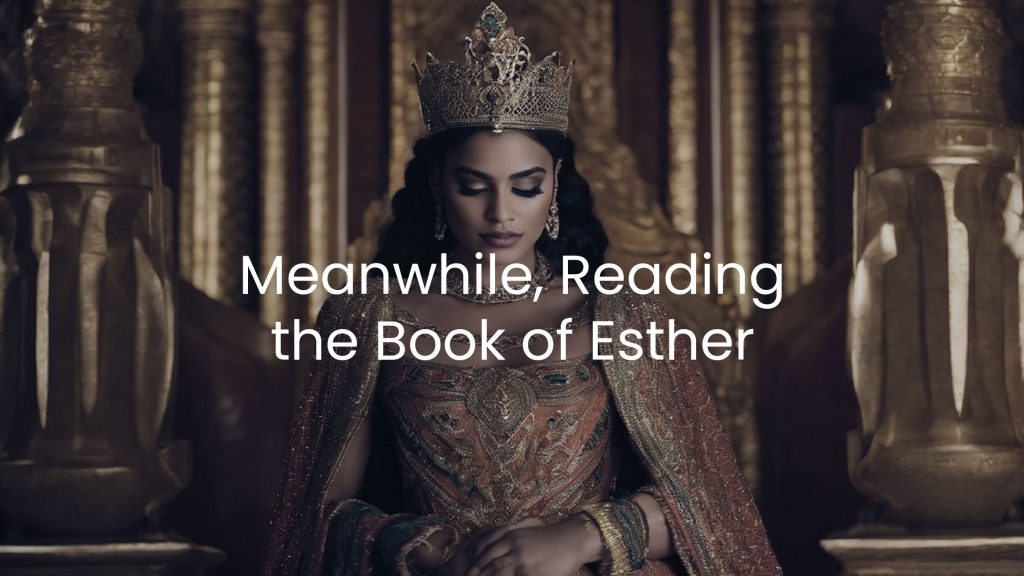|
Getting your Trinity Audio player ready...
|
Two of my favorite quotes in the Bible are found in Esther 4:14 and 16. . .
And who knows whether you have not come to the kingdom for such a time as this? (v. 14b, ESV)
Then I will go to the king, though it is against the law, and if I perish, I perish (v. 16b).
This book tells the story of a heroine born into a culture not her own, forced to live a life not in sync with her Jewish religion, and yet she fulfilled God’s eternal purpose in her life.
The setting is Susa, the capital of the Persian Empire, where many Jews who had not returned to Jerusalem (see the books of Ezra and Nehemiah), lived in large communities throughout the empire.
Reading the Book of Esther, we note a plot to betray and murder all the Jews in the Persian Empire. With someone needed for such a time as this, not a valiant warrior but an orphaned Esther, raised by her cousin Mordecai, responded with courage.
For such a time as this! If I perish, I perish!
Quick background:
King Ahasuerus held a banquet for 180 days to celebrate his greatness with representatives from every province of his empire that stretched from India to Ethiopia. On the last day of the banquet he ordered Queen Vashti to appear to display her splendor and beauty.
She refused. This didn’t go well for her, and she was quickly deposed as Queen.
Saddened by the loss of this wife, beautiful virgins were brought from throughout the kingdom so the King could find a new wife. Esther was chosen but told by Mordecai to hide her Jewish ancestry.
Meanwhile, Mordecai, a court official, overhears a plot to take the King’s life and informs Esther, who informs the King — plot foiled. Meanwhile, evil villain Haman, another more prestigious court official, gets promoted by the King with everyone bowing to him except Mordecai (who can’t bow to another man because he’s Jewish).
Meanwhile, Haman plots to kill not only Mordecai but all the Jews who won’t bow by getting the King to sign a decree that, on a certain date, all Jews were to be executed.
Let’s take a breath!
Meanwhile, Mordecai sends a note to Esther telling her to appeal to the King, saying. . .
Do not think to yourself that in the king’s palace you will escape any more than all the other Jews. For if you keep silent at this time, relief and deliverance will rise for the Jews from another place, but you and your father’s house will perish. And who knows whether you have not come to the kingdom for such a time as this?” (4:12-14)
Since no one can enter the King’s presence uninvited, as it’s a death sentence, unless the King extends his welcoming golden scepter, Esther replies to Mordecai. . .
Go, gather all the Jews to be found in Susa, and hold a fast on my behalf, and do not eat or drink for three days, night or day. I and my young women will also fast as you do. Then I will go to the king, though it is against the law, and if I perish, I perish. Esther 4:16
Meanwhile, evil Haman begins to build a gallows outside his home thinking to impale Mordecai on it (with the other Jews soon to be killed throughout the empire). Meanwhile, Esther invites only the King and Haman to a banquet that she prepares, where she reveals to the King (with Haman present) about Haman’s plot to kill her and the rest of the Jews.
Meanwhile, with the King furious, he orders Haman to be impaled on the gallows that Haman had built for Mordecai. And then, the King gives another edict, allowing them to defend themselves.
Meanwhile, I’ve left a lot out of this story, so please read the Book of Esther.
I’ve written too many “meanwhiles” and my creative writing professor would be disappointed, but since I’ve already overdone it, one more should be okay. . .
Meanwhile, all of us have been born for such a time as this — if we perish, we perish!

